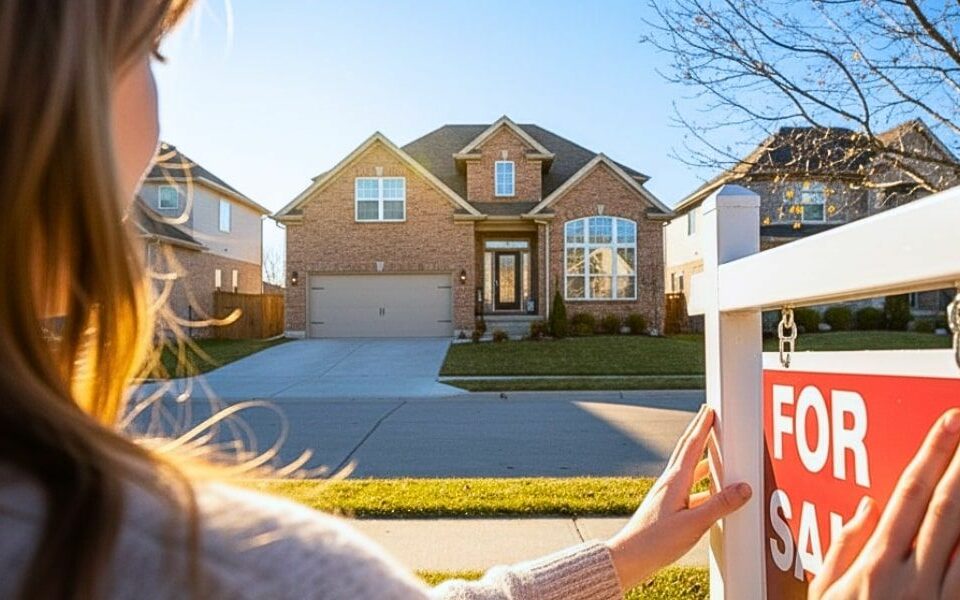
Many South Carolina homeowners are weighing the same decision: renovate or sell. Rising home equity creates opportunity, but using that equity wisely requires strategy. You may be sitting on significant value and wondering if tapping it for improvements will deliver better returns than listing your home.
This post breaks down the key factors to help you decide whether to renovate or sell.
South Carolina Real Estate Market Watch
As of September 2025, the median listing price in Lexington County is about $321,950, up from last year. However, real estate trends in South Carolina can change quickly. Contact the Southern Dreams Realty team for the most up-to-date information.
Key Considerations Before Deciding to Renovate or Sell Using Home Equity
Understanding How Home Equity Works
Home equity is the portion of your property you truly own. It’s the market value minus your outstanding mortgage balance. Accessing that equity can fund major projects or open the door to new investments. Common methods include:
- Home Equity Loans: Fixed-rate lump sums that can work well for defined projects.
- Home Equity Lines of Credit: Revolving credit lines with flexible draws.
- Cash-Out Refinances: Replace your mortgage with a larger loan to withdraw cash.
Each option carries unique costs and terms. Choosing the right one depends on your financial comfort, plans, and the scope of your renovation.
Estimating the Return on Renovation
Renovations can improve comfort, efficiency, and resale appeal, but not every project pays equally. According to the 2024 Cost vs. Value Report, exterior upgrades and practical improvements often outperform cosmetic overhauls.
For example, a garage door replacement can yield up to 194% ROI. On the other hand, a minor kitchen remodel recovers up to 96% of its cost. Bathroom updates typically yield about 74% in savings.
Homebuyers often pay premiums for modern kitchens, fresh paint, and improvements to curb appeal. In contrast, overly customized or high-end remodels may recover less if they exceed neighborhood standards. The best approach is to focus on updates that boost function, efficiency, and broad appeal.
Factoring in Borrowing Costs and Risk
Using home equity to renovate can make sense if your financial footing is strong. These loans generally have lower interest rates than unsecured credit cards or personal loans. Still, you must account for:
- Closing costs and fees typically total 1–5% of the borrowed amount.
- Loan-to-value (LTV) limits of around 80–85%, which determine how much you can borrow.
- Market volatility, since declining property values can reduce your cushion of equity.
A home equity loan or HELOC should support your long-term goals, not strain your budget. Borrow only what you can comfortably repay, even if home values dip temporarily.
Aligning Your Time Horizon with the Right Strategy
How long you plan to stay in your home matters. Renovations usually make sense when you intend to stay for five years or longer. That gives you time for the appreciation to offset the costs.
To calculate your break-even period, divide the renovation cost by the estimated annual increase in value. If you spend $50,000 and expect to gain $35,000 in value, it will take about 1.5 years to recover that expense.
If you expect to move soon or need liquidity for another property, selling may provide a more stable financial outcome.
Reading the South Carolina Market
Buyer preferences lean toward move-in-ready, energy-efficient homes. In Lexington, well-maintained listings with updated kitchens and bathrooms typically sell near the asking price. Homes that need extensive work often take longer to close or attract lower offers. These patterns suggest that selective upgrades can make your home more competitive even if you plan to sell soon.
Lifestyle and Quality-of-Life Factors
Numbers tell part of the story, but lifestyle matters too. Renovating allows you to stay in a community you love. You can maintain established routines and enjoy daily improvements that enhance comfort and pride of ownership. Selling offers a clean break and can relieve you of maintenance. However, it comes with transaction costs and the challenge of finding your next home.
If your neighborhood fits your lifestyle, renovating could strengthen both your enjoyment and long-term equity.
Practical Example
Consider a homeowner with a $350,000 property and $150,000 remaining on the mortgage, leaving $200,000 in equity. They plan a $50,000 kitchen renovation expected to add $35,000 in value (70% ROI). If financed through a HELOC at roughly 8% interest, total carrying costs might add $3,000 annually.
Staying in the home for five years or more allows them to recoup both cost and enjoyment value. Selling within one year, however, would likely yield better results by preserving that equity for the next purchase.
If You Choose to Renovate
Plan carefully and prioritize improvements with strong resale appeal.
Focus on:
- Kitchens, bathrooms, and exterior updates with proven ROI.
- Avoiding over-personalized designs that limit resale flexibility.
- Setting aside 10–20% for unforeseen costs.
Monitoring progress, checking local comps mid-project, and working with trusted contractors can keep projects profitable and on schedule.
If You Choose to Sell
Selling may be wiser if your home no longer fits your lifestyle or if market conditions favor sellers. To maximize your return:
- Refresh with simple updates like neutral paint, staging, and landscaping.
- List during high-traffic seasons, such as spring and early summer.
- Partner with a local real estate expert to price competitively and minimize transaction costs.
The key is presenting your home in its best light without overinvesting in last-minute improvements.
Alternative Paths
Some homeowners take a hybrid approach. They renovate selectively to improve resale potential or explore home equity investment programs for flexible funding. Others use proceeds from a sale to invest in rental or vacation properties across South Carolina’s growing markets. Both options preserve wealth while adapting to personal goals.
Homeowner FAQs: Making the Smart Equity Decision
How much equity do I need to qualify?
Most lenders require you to retain 15–20% equity after borrowing.
Can I still sell after taking a HELOC?
Yes. Sale proceeds first repay the equity loan, and you keep the remainder.
Which option is better, a home equity loan or a HELOC?
A home equity loan provides fixed payments and predictable costs. A HELOC offers flexibility with variable rates.
Will renovations always raise value?
No. ROI depends on project scope, market demand, and neighborhood standards.
What happens if home prices decline?
You might lose part of your equity buffer. Borrow cautiously and focus on projects with clear value-add potential.
Partner with Southern Dreams Realty
At Southern Dreams Realty, we help South Carolina homeowners navigate the decision to renovate or sell with precision and care. Our market expertise across Lexington, Lake Murray, and Columbia ensures every choice aligns with real data and personal goals.
Contact Southern Dreams Realty to assess your home’s value, explore your options, and make your next move with confidence.



